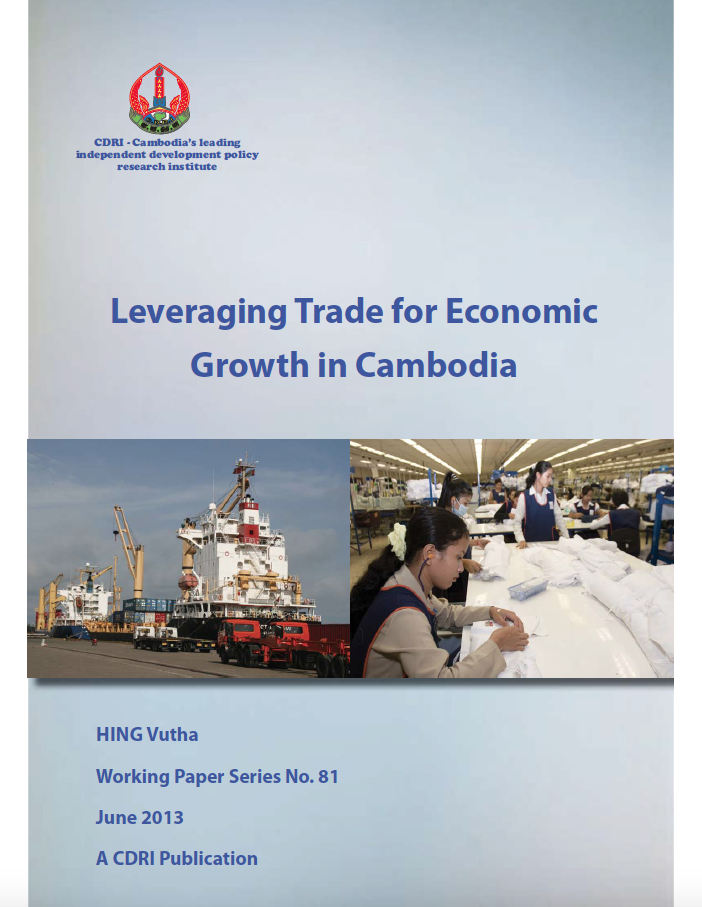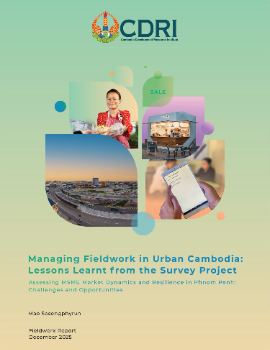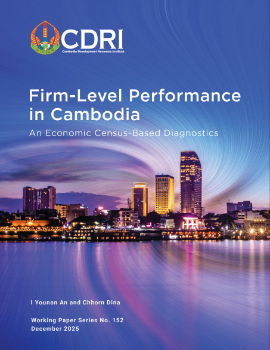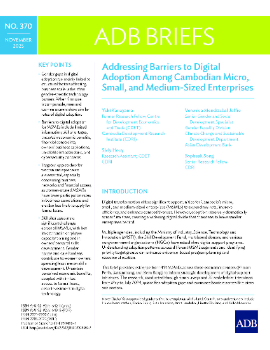
Leveraging Trade for Economic Growth in Cambodia
Keyword: Trade and economic growth, Cambodia trade policy, regional integration, export competitiveness, infrastructure and reform priorities
Abstract/Summary
This paper attempts
to answer three important questions: (1) Why does trade matter? (2) Whyis trade
vital for Cambodia’s growth? (3) What policy priorities for Cambodia will make
tradework for economic growth?
First, trade
matters because it increases growth. Openness to trade affects growth by:
allowing a country to exploit its comparative advantages and thereby enhance
the efficiency of resource allocation; facilitating acquisition of foreign
technology and knowledge and thus raising productivity; and attracting more
investment, stimulating competition and improving efficiency and
competitiveness. Although academic debate has failed to reach a consensus due
to problems such as weak theoretical foundations, measurement of openness,
reverse causation and diverse methodologies, most economists now agree that an
outward-oriented trade policy promises economic benefits. This is why almost
all governments in both developed and developing countries have designed trade
policy as a key element of their growth and development strategies.
Second, trade is
important for Cambodia’s growth strategy for at least three reasons. One,
Cambodia has transformed its trade sector into an engine of economic growth
over the last two decades, and that provides the momentum for further
liberalisation and development of trade for future growth. Two, regional
economic integration has moved toward regional free trade zones as the way to
boost trade and promote prosperity. Given the country’s strategic location in
the fast growing East Asian region, these dynamic regional cooperation and
integration processes represent huge opportunities for export growth,
diversification, competitiveness and growth. Three, most analysts agree that
much remains to be done in Cambodia’s trade sector development. Despite significant
progress, the trade sector remains weak and vulnerable. In addition to being at
the low end of the value chain and lacking diversification, Cambodian exports
are constrained by cumbersome customs procedures, infrastructure bottlenecks,
poor logistics and trade facilitation and lack of capacity to meet technical
standards.
Third, the key to
enhancing the role of trade in Cambodia’s growth is to remove obstacles. Policy
priorities include, among others, investing in trade-related infrastructure;
improving logistics; upgrading customs procedures; strengthening regional cooperation
and connectivity; stepping up export market information services; and improving
standard management systems. These measures should come together with
complementary policies including macroeconomic stability and financial sector
development; improvement in the investment and business climate; investment in
general infrastructure, education and health; technology and knowledge
transfer. It is also recommended that further trade policy liberalisation and
reforms gain political support from the leadership, receive momentum and
impetus from key stakeholders and be supported by effective and responsive
institutions.



